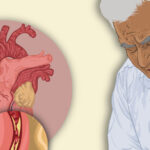There is a direct correlation between high blood pressure levels and smoking, according to a large body of research. Atherosclerosis (the buildup of plaque in the arteries) is caused by smoking. Chronic hypertension is caused by arterial aging caused by smoking. US premature mortality is primarily caused by tobacco smoking and high blood pressure.
Smoking cessation programs have been developed following evidence that smoking contributes to high blood pressure. A recent study (listed below) has shown that smoking cessation programs can reduce diastolic and systolic blood pressure. Here are the health benefits of quitting smoking and how it impacts your blood pressure.
Why does smoking raise blood pressure?
Nicotine is the main cause of high blood pressure if you smoke cigarettes or are exposed to secondhand smoke. Smoking causes plaque to build up in your arteries due to the buildup of fatty substances. Blood clots and high blood pressure are associated with narrowed arteries and harder walls.
As a result of smoking, your blood pressure rises each time you do so. You may not be able to lower your blood pressure if you smoke while taking beta-blockers.
Five Striking Facts About Smoking and Blood Pressure
- Immediate Blood Pressure Rise: Smoking a cigarette can cause an immediate, temporary increase in blood pressure. This is due to nicotine, a key ingredient in tobacco, which stimulates the body to produce adrenaline. This adrenaline rush causes the heart to beat faster and narrows the blood vessels, leading to higher blood pressure.
- Long-Term Blood Pressure Effects: Regular smokers often have higher blood pressure than non-smokers. This is not only due to the direct effect of nicotine but also because smoking damages the blood vessels, making them stiffer and less elastic, which can increase blood pressure over time.
- Increased Risk of Hypertension: Smoking is a known risk factor for the development of hypertension (high blood pressure). Hypertension is a significant risk factor for heart disease and stroke, and smoking exacerbates this risk.
- Reduced Effectiveness of Blood Pressure Medications: Smoking can interfere with the effectiveness of medications used to treat high blood pressure. Smokers may find that they need higher doses or more medications to control their blood pressure compared to non-smokers.
- Beneficial Effects of Quitting: Quitting smoking has immediate and long-term benefits for blood pressure and overall cardiovascular health. Within a few hours of quitting, blood pressure begins to decrease, and the risk of heart disease starts to drop. Long-term cessation leads to a significant reduction in the risk of hypertension and cardiovascular diseases.
Sources
- Smoking and the risk of incident hypertension in middle-aged and older men (2007)
- The role of smoking cessation programs in lowering blood pressure: A retrospective cohort study (2021)
- Current cigarette smoking among adults in the United States | Centers for Disease Control and Prevention
- Stopping smokeless tobacco use: A call to action (2021)
- Outbreak of lung injury associated with the use of e-cgarette, or vaping, products | Centers for Disease Control and Prevention
- Notes from the field: E-cigarette use among middle and high school students — National youth tobacco survey, United States, 2021 | Centers for Disease Control and Prevention
- Want to quit smoking? FDA-approved and FDA-cleared cessation products can help | U.S. Food and Drug Administration


